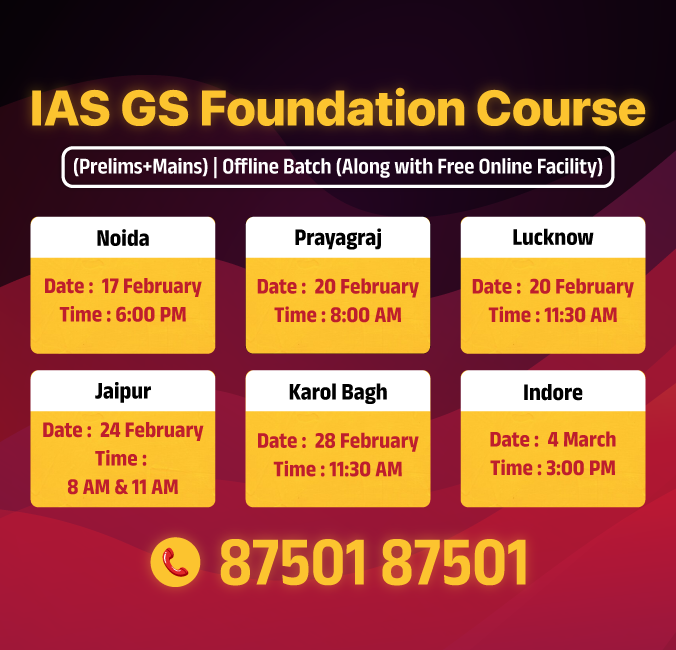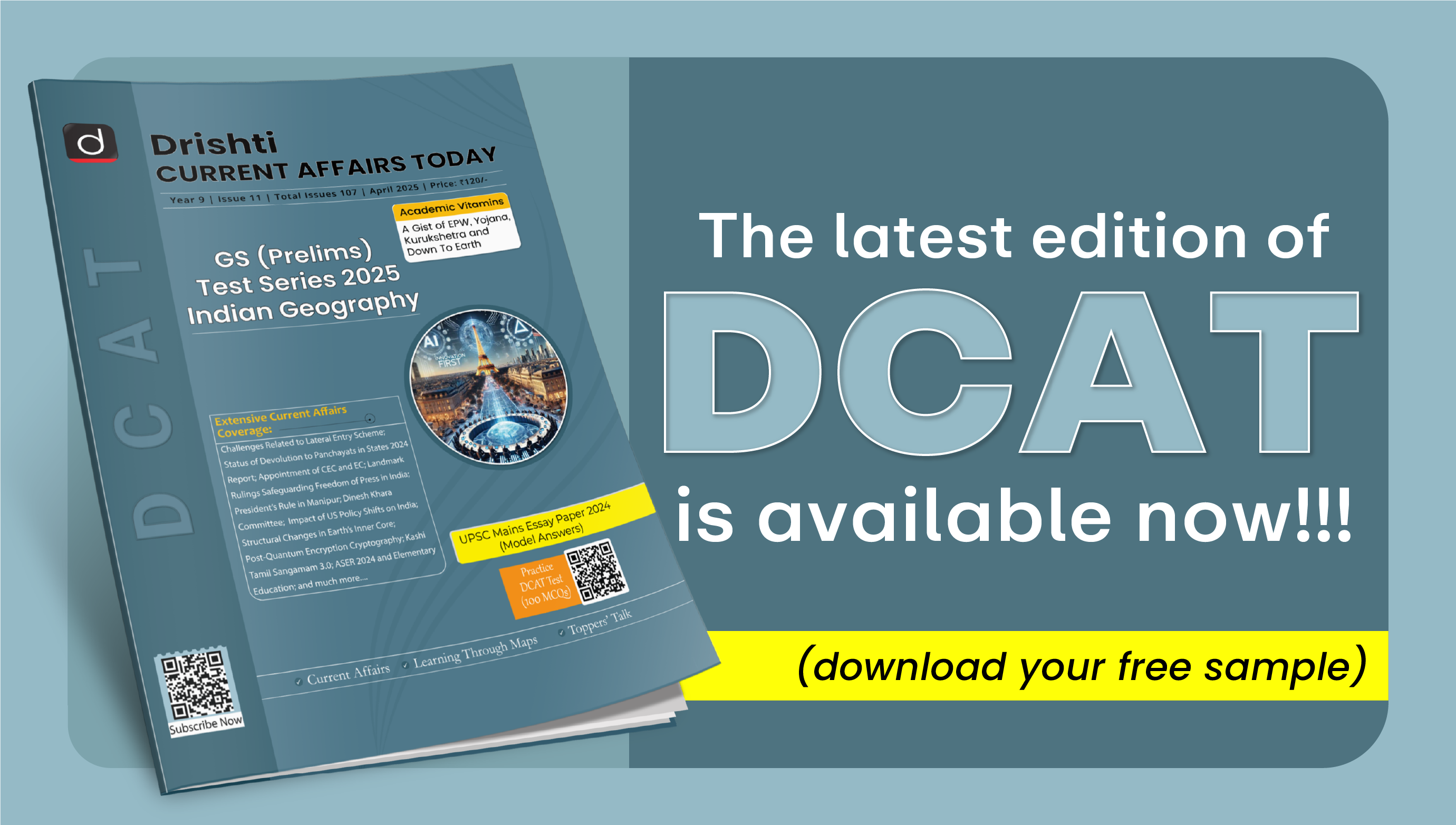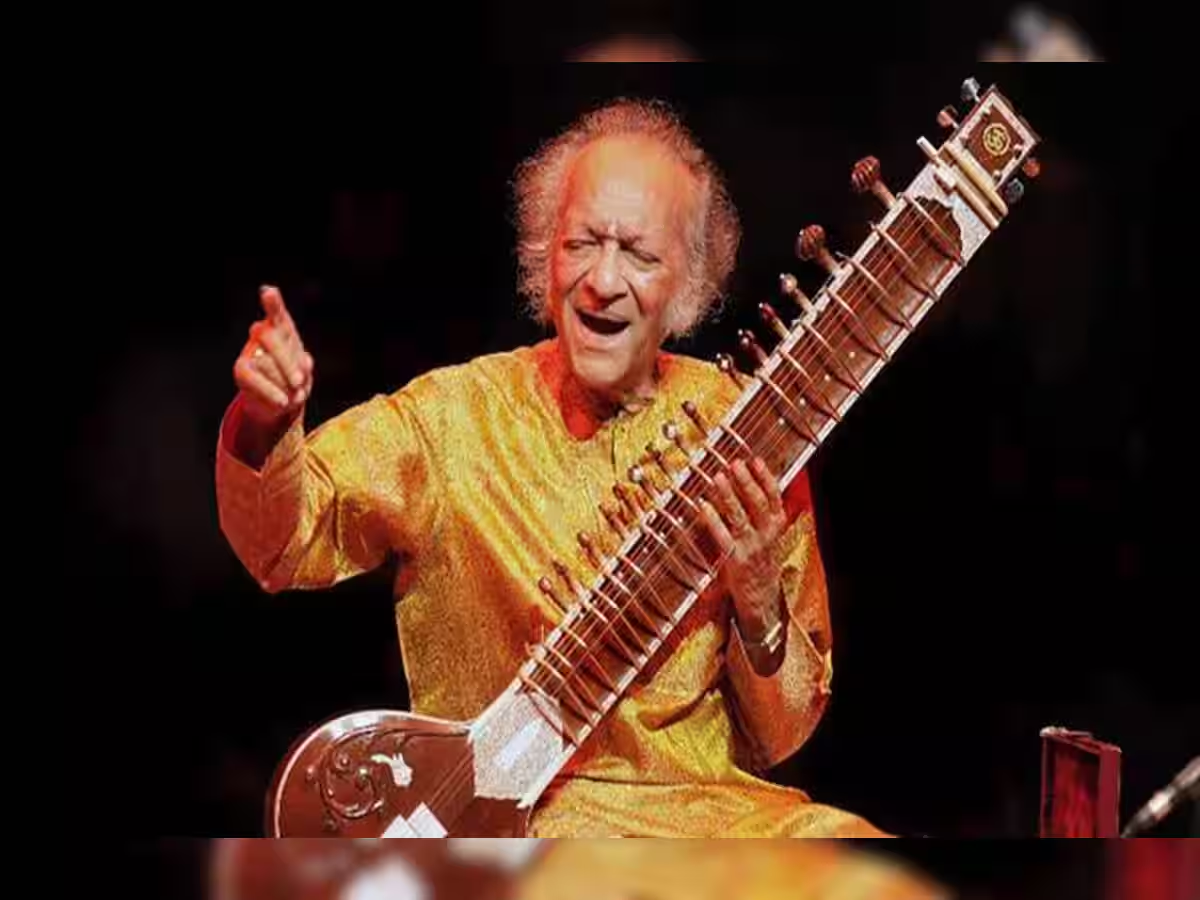Uttar Pradesh Switch to Hindi
Bharat Ratna Pandit Ravi Shankar Birth Anniversary
Why in News?
7th April 2025, marks the 103rd birth anniversary of sitar player and composer Pandit Ravi Shankar.
Key Points
- About Pandit Ravi Shankar:
- Pandit Ravi Shankar, born on 7th April 1920 in Varanasi , was a great sitarist and composer of Indian classical music .
- His original name was Ravindra Shankar Chowdhury and he was the seventh son of his father Shyam Shankar Chowdhury and mother Hemangini Devi.
- At the age of 18, he started learning sitar and took initiation from Ustad Allauddin Khan of Maihar.
- He recomposed the famous song "Saare Jahan Se Achcha" at the age of 25.
- He served as the Music Director of All India Radio in New Delhi from the year 1949 to 1956.
- Subsequently, in the 1960s he taught and performed Indian classical music with violinists Yehudi Menuhin and George Harrison, helping to popularise it in the Western world.
- Pandit Ravi Shankar introduced Indian classical music to the western world.
- The Beatles' George Harrison described him as the 'Godfather of World Music'.
- He was also a nominated member of the Rajya Sabha from 1986 to 1992.
- He died on December 11, 2012 at the age of 92.
- Honours and Awards
- He was awarded the country's highest civilian honour, Bharat Ratna, in 1999. Apart from this, he received many honours and awards, which include:
- UNESCO Goodwill Ambassador (1999): Appointed for cultural contributions.
- Padma Bhushan (1967): India's third highest civilian award.
- Padma Vibhushan (1981): Second highest civilian award for exceptional service.
- Kalidas Samman (1986): Madhya Pradesh's premier award for excellence in Indian classical music.
- Sangeet Natak Akademi Award (1987): A mark of excellence in the field of music in India.
- Grammy Awards (four times): Honoured in various categories, including a posthumous Lifetime Achievement Award in 2013.
- He was awarded the country's highest civilian honour, Bharat Ratna, in 1999. Apart from this, he received many honours and awards, which include:
Indian Classical Music
- Introduction:
- Classical Indian music is a complex and ancient form of music with its roots in the Vedas, the oldest texts of Hinduism, dating back to around 1500 BCE.
- It is divided into two main traditions: Hindustani music (prevalent in North India) and Carnatic music (popular in South India).
- Historical Background:
- Indian classical music traces its origins to ancient texts such as the Samaveda, which shows its deep historical background and connection to Indian traditions.
- Importance:
- Preserving the authenticity of the Guru-Shishya tradition (teacher-disciple tradition) in classical music has ensured the transfer of knowledge and skills from one generation to the next.
- Classical music follows a set of rules and conventions (such as the raga system, which has been passed down for generations) that have ensured the preservation of India's musical heritage.
- Classical music plays a role in uniting people from diverse backgrounds by acting as a common cultural thread. It has a role in promoting a sense of national unity through reducing regional, linguistic and religious barriers.
- Classical music includes a combination of various regional styles and instruments, which reflects the cultural diversity of India. This inclusiveness promotes harmony and coordination among different communities.


Uttar Pradesh Switch to Hindi
UP Fire Department Honored by Goa Government
Why in News?
On 1st April 2025, the Goa Government honored the Uttar Pradesh Fire Department.
Key Points
- About the issue:
- The honour was presented by the Directorate of Fire and Emergency Services, Goa.
- This felicitation ceremony was organised in Panaji, the capital of Goa.
- This honour was given for excellent fire fighting and disaster management services in Mahakumbh 2025 , Prayagraj.
- Achievements of the Fire Department:
- Controlled 185 fire incidents in 45 days, of which 24 were major fire incidents.
- Apart from this, about 86 small fire incidents were brought under control immediately.
- Potential losses of approximately Rs 16.5 crore were averted.
Kumbh Mela
- In the year 2025 Maha Kumbh Mela was held in Prayagraj from 13 January to 26 February 2025 attended by more than 66.30 crore devotees.
- The word ' Kumbh' is derived from the metal 'Kumbhaka' (sacred pot of the nectar of immortality).
- King Harshavardhana of the Pushyabhuti dynasty started organizing the Kumbh Mela in Prayagraj.
- It is the largest peaceful congregation of pilgrims during which the participants take a bath or dip in the holy river. This congregation takes place at 4 different places, namely:






%20MPPCS%202025%20Desktop%20E.jpg)
%20MPPCS%202025%20Mobile%20E%20(1).jpg)






.png)
.png)











 PCS Parikshan
PCS Parikshan


